
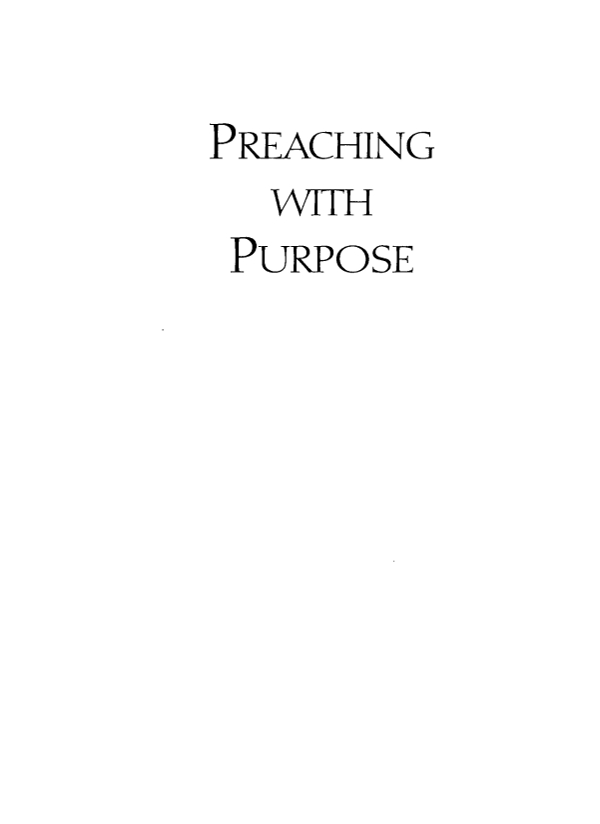
Resources by Jay E. Adams
The Christian Counselors Manual
The Christian Counselors Casebook
Competent to Counsel
Handbook of Church Discipline
How to Help People Change
Marriage, Divorce, and Remarriage in the Bible
Preaching with Purpose
Shepherding Gods Flock
Solving Marriage Problems
A Theology of Christian Counseling
We want to hear from you. Please send your comments about this book to us in care of the address below. Thank you.


Preaching with Purpose
Copyright 1982 by Jay E. Adams
Requests for information should be addressed to:
Zondervan, Grand Rapids, Michigan 49530
ePub Edition February 2015: ISBN 978-0-3105-2432-8
Library of Congress Cataloging-in-Publication Data
Adams, Jay Edward
Preaching with purpose.
(The Jay Adams library)
ISBN: 0-310-51091-0 (softcover)
Originally published: Phillipsburg, N.J.:
Presbyterian and Reformed Pub. Co., 1982
Includes index.
1. Preaching. I. Title. II. Series.
Adams, Jay Edward. Jay Adams Library.
BV4211.2.A33 1986 86-5109
All New Testament quotations are from The New Testament in Everyday English, Baker Book House, 1979.
All rights reserved. No part of this publication may be reproduced, stored in a retrieval system, or transmitted in any form or by any means electronic, mechanical, photocopy, recording, or any other except for brief quotations in printed reviews, without the prior permission of the publisher.
03 04 05 / DC/ 23 22 21 20
DC/ 23 22 21 20
To
All of those preachers of the Word
who
wish
to reconsider
preaching
from
a more radically biblical
perspective.
CONTENTS
The work that you hold in your hands is the result of over 25 years of intensive analysis and thought about preaching. Both my doctoral degree and my masters degree were acquired in the area of preaching. Throughout the time that I taught counseling at Westminster Theological Seminary I also taught (even more) courses on preaching. Now I plan to develop, direct, and teach in a D.Min. program on preaching at the newly established western campus of Westminster Seminary in Escondido, California. It is in preparation for that program that I have finally written this book, which, in the form of notes and outlines, has been lying in a drawer of my desk for at least 12 years. My prayer is that God will use it in an effective way in the lives and ministries of many.
Jay E. Adams
The Millhouse
1982
In my opinion, there has not appeared in the English language a significant textbook on preaching since John Broadus, a New Testament scholar, wrote his landmark book, The Preparation and Delivery of Sermons. I make that statement advisedly after studying and teaching preaching intensively for over 25 years. Many good books on preaching have been published. Each is helpful in its own way, but none has done for contemporary preachers what Broadus did for his fellow ministers in his day.
Perhaps Broadus work was enough; why attempt to move ahead of him? someone may wonder. I only wish that were the case. If it were, it would save us all a great amount of anguish and effort, and instead of writing this book I could devote my time to other tasks. But it isnt. Broadus approach, his style, etc., were helpful to those who were called to preach in another era, not like our own. He codified for his generation, and the one that followed, much of the best that had been said thus far. But his approach to preaching hardly begins to meet the problems ministers must face today, and certainly not in a form that is pertinent to the contemporary scene.
Moreover, in all candor it must be said that, like those who preceded him, and many who have followed, Broadus by-passed a number of important matters and, at the same time, retained much of the scholastic approach, which has served to weaken rather than strengthen the preaching of those who have adopted it. Scholasticism, Romes dubious legacy to Protestantism, was mediated to us through the English Puritans, who took a number of wrong turns in preachingsome of which have brought us to the present sorry plight in which the evangelical church finds itself.
That last statement points up a major reason why I have been impelled to assume the task that has produced this book. My goal has been to develop a textbook on preaching for pastors, seminary students, and other Christian speakers that, I hope, will make an impact in our day significant enough to change preaching substantially.
That, with fewand I mean very fewnotable exceptions, preachers need to change what they are doing is not a point that I shall argue. If you are of the mind that, on the whole, preaching in America is tolerably good (or, for that matter, even tolerable), then you and I are on such entirely different wavelengths that I dont think I could convince you to see it otherwise, no matter how hard I tried. So I wont. But if you are among those who recognize the great deficiencies that exist and would like to do something significant about the situation, even if it might mean taking radical departures from your present practices, then I believe this is the book for you. This book is not a mere restatement of past ideas and practices in contemporary language. It takes a new turn.
As there was a need for a definitive change in Christian counseling when I wrote Competent to Counsel, so too is there a need for such change in all areas of the practical fieldin administration, Christian education,some good preaching, in all honesty I must say also that there has been much, much more poor preaching. My experience has not been isolated to novices, however; I have heard conference speakers, seminary professors, pastors, and just about every other sort of preacher there is, from every sort of background and denomination. Yet the story is the same: poor preaching predominates. Everywhere I go I hear the same complaint from laymen: Why dont the seminaries teach men to preach? The question is not just a part of the typical griping that goes on all the time; it has a solid basis in fact. And it is asked most frequently by those who are most sincere in their faith, not as an excuse to cover irresponsible behavior, but as a genuine, heartfelt cry. Men and women (and especially young people) are being turned away from Christ and His church by dull, unarresting, unedifying, and aimless preaching. The question about seminaries is a legitimate and live one.
Well, why dont the seminaries do a better job?
That question haunts homiletics departments everywhere. Part of the answer will be found in the inadequate structure of seminaries themselves, part in the failure of the church leadership to take the matter of ministerial selection and ordination more seriously, and part in the almost unbelievable willingness of congregations to put up with mediocrity or worse.
At any rate, the present crisis in preaching need not, indeed must not, be permitted to continue. Something must be done about the situation. While I do not expect to see great changes in the structure of theological education in the near future (there are too many persons with too many vested interests of various sorts who are too deeply entrenched for that), there is one place from which I think I can realistically hope for changefrom faithful, concerned pastors and seminary students. And, because homiletic professors in particular, as well as practical theology professors in general, are so often considered a breed apart by other teachers in the seminary, there is hope that they too may find it easier to break the chains of tradition that so tightly bind most other theological academes.
Next page
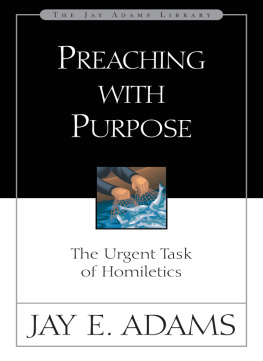
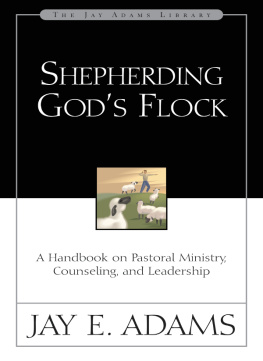

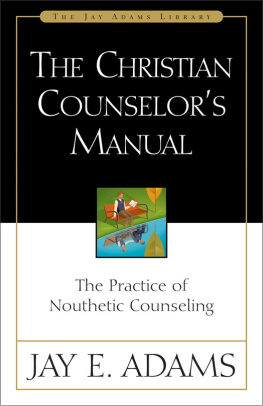
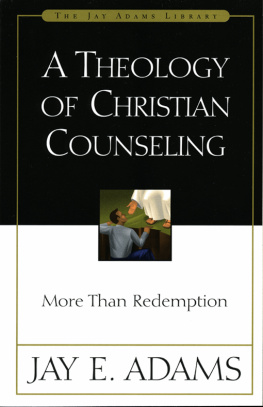
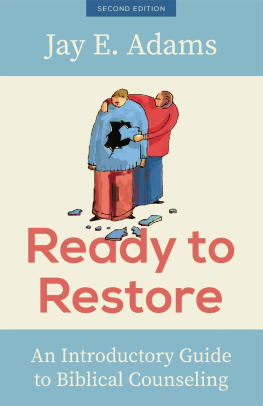

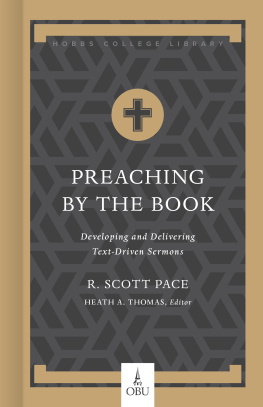
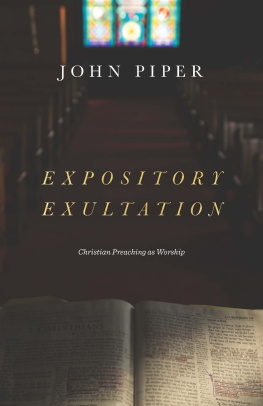
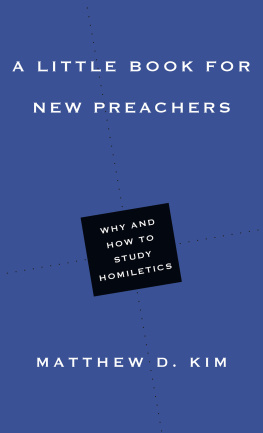
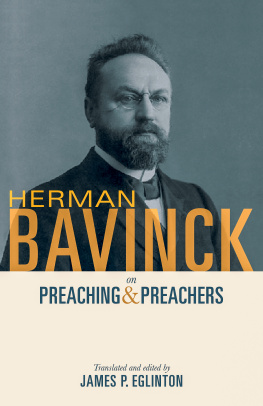
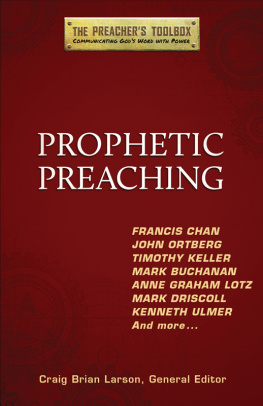
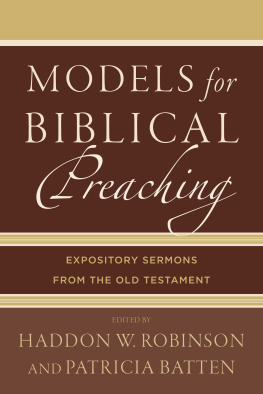
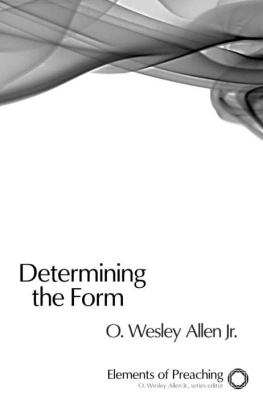
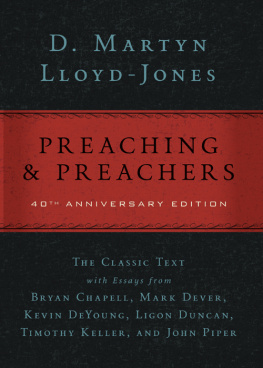
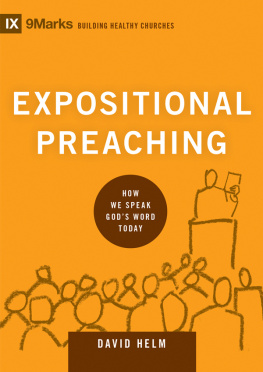
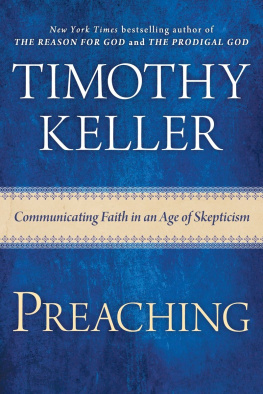
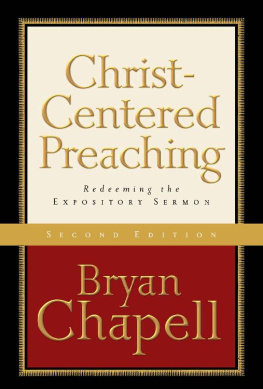




 DC/ 23 22 21 20
DC/ 23 22 21 20